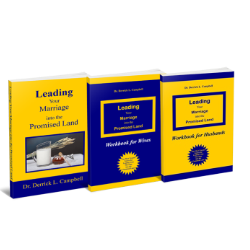How can a serial cheater become faithful?
People who become a serial cheater will continue to have difficulties sustaining long-term relationships with learning to become faithful. The old saying – Once a Cheater, always a cheater – according to recent research has a ring of truth. Serial cheaters can become faithful by following a self-developed moral code of conduct based on Christian values.
The researchers also noted risk factors for infidelity, including low levels of commitment to the relationship, declining satisfaction in the relationship, permissive attitudes about cheating, changing social norms, as well as personality traits of those who cheat.
In the University of Denver study, first relationships lasted an average of 38.8 months before they ended, while second relationships had endured an average of 29.6 months by study’s end. Sixty-five percent of participants said they lived with their first-relationship partner at some point (married or not), while 19 percent reported that living arrangement with their second relationship.
The challenge for a serial cheater is that multiple relationships at the same time are acceptable. According to Kelly Campbell Ph.D. people cheat for three primary reasons.
- Individual reasons. Individual reasons for cheating include qualities about the person that make him or her more prone to commit infidelity. Researchers have identified a variety of individual risk factors that include gender, personality, and religion. It is thought that men are more likely than women to commit infidelity, largely because men have more testosterone, which is responsible for the strong desire to have sex. Next is personality. Those who have less conscientious and less agreeable personalities are more likely than people high on these traits to commit infidelity. Finally religion is a factor. Very religious people and those with a conservative political orientation are less likely than others to commit infidelity because they have more rigid values.
- Relationship reasons. People also cheat because characteristics about their relationship itself are unsatisfying. For these people, becoming involved in a well-matched partnership diminishes or eliminates their desire to cheat. Researchers find that partnerships characterized by dissatisfaction, unfulfilling sex, and high conflict are at higher risk for infidelity. Also, the more dissimilar partners are—in terms of personality, education level, and other factors—the more likely they are to experience infidelity.
- Situational reasons. Others cheat because of the situation: A person might not have a personality prone to cheating, and might be in a perfectly happy relationship, but something about their environment puts them at risk for infidelity. Some situations are more tempting than others. Spending time in settings with many attractive people can make cheating more likely. The nature of a person’s employment is also related to infidelity—individuals whose work involves touching other people, having personal discussions, or a great deal of one-on-one time are more likely to have an affair. When the sex ratio is imbalanced (an overabundance of men or women in the work or campus environment), people are also more likely to experience infidelity. Finally, people who live in urban areas, as opposed to rural, less populated regions, are at greater risk—people in metropolitan locations generally have more liberal attitudes about extramarital sex, and cities simply have more people, creating an environment of higher anonymity and a larger potential group of partners with whom to have sex.
Eliminating the propensity to become a serial cheater must begin with the individual developing a personal code of ethics. Answer the following to develop your personal code of ethics to help ensure that you refrain from continuing as a serial cheater.
- What are your moral standards? Provide biblical scriptures to support your answer.
- How will you treat your spouse?
- What scriptures support how you should you treat your spouse?
- How will you develop trust between you and your spouse? Provide specific examples.
- How will you develop honesty and integrity in your marriage? Provide specific examples.
- What biblical standards must you follow to ensure a happy marriage?
- How will you make the well being of your spouse the fundamental center of all moral and ethical decisions? Provide biblical scriptures to support your answer.
- How should you use your positional power in you marriage? Provide biblical scripture to support your answer.
- How will you avoid sin in your marriage?
The descried process for developing a personal code of ethics will help the serial cheater to become more faithful.
Related Articles
How to Spot a Cheater Before You Fall For One
Do you have a cheating husband or wife? This ONE sign reveals if your partner is guilty.
Is your husband or wife cheating? This is why people happy in relationships are unfaithful.
In Christ,
Dr. Derrick and Mrs. Sheila Campbell
PO Box 4707 Cherry Hill, NJ 08012 (856) 566-3267
www.advancedmarriagetraining.com
Published Books
- Leading Your Marriage into the Promised Land
- Leading Your Marriage into the Promised Land (Workbook for husbands & Wives)
- Advanced Marriage Training for Singles
- Husband Leadership Principles
“I was blessed by the love and sensitivity that you and your wife showed during the presentation”.
Bishop Joseph P. Ravenell
Samaritan Baptist Church
Trenton, NJ “I would highly recommend you to any church or organization desiring to provide their people with timely marital wisdom and practical application skills”.
Dr. James E. Woods, II
El Shaddia Christian Assembly
Philadelphia, PA
![]()








